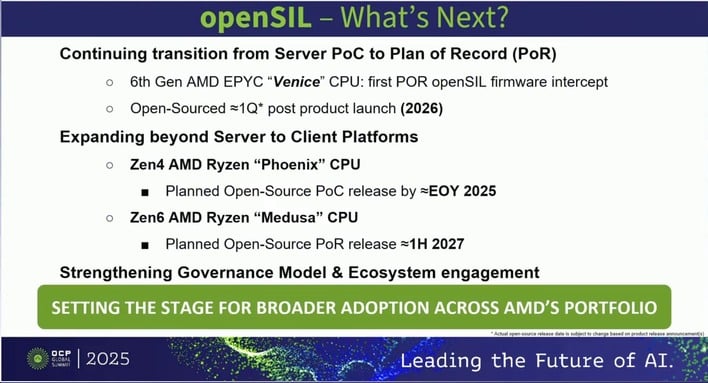AMD Just Referenced Zen 6 Ryzen Medusa CPUs For The First Time
As a codename, Medusa probably sounds familiar to you if you keep up with this stuff. It's been bandied about for more than a year as the codename for processors based on the Zen 6 architecture. There are many types of codenames—CPU architecture, GPU architecture, individual die, and more—but this specific one appears to apply broadly to "Zen 6 consumer CPUs", as leakers have discussed many different types of products under the mantle of "Medusa". From what we've seen, "Medusa" is supposed to include the next-generation Ryzen desktop processors as well as both halo and high-end mobile processors. However, it's not the code name for the Zen 6 architecture itself; that is instead called Morpheus.
Enthusiasts are expecting big things from AMD's Zen 6 CPUs. Zen 4 was a significant uplift over Zen 3, but much of that was due to impressive clock rate scaling and the move to Socket AM5, which offered DDR5 memory and improved I/O. Zen 5, by contrast, was pretty underwhelming for most consumer workloads. The biggest design change in the Zen 5 architecture was the move to full-width AVX-512, but very few consumer applications benefit from that. Meanwhile, the desktop Ryzen 9000 processors make use of the very same cIOD, or I/O die, as the Ryzen 7000 processors. Many people have made much about this commonality, and expect that Zen 6 will be a leap forward in comparison.
We don't know much about Zen 6 yet, architecturally, but from a design point of view, it is purportedly aiming for extremely high clock rates in the middle-6GHz range. Leakers have also stated that Zen 6 will make use of silicon "bridge dies" for ultra high-speed interconnects between chiplets rather than relying on a conventional interposer. That could mean radical improvements in I/O and memory access versus Zen 5 processors. There are also many rumors about the modular nature of AMD's next-generation parts, where purportedly, CPU and GPU tiles will get mixed and matched in interesting ways.
Of course, all of that is based on supposed leaks, and we should avoid getting our expectations up too high based on unofficial details. Right, what we know for sure is that at least some Zen 6-based client processors are indeed known as Medusa, and that they will slot into many if not most extant Socket AM5 motherboards. We have a while to wait before they appear, though; AMD was said to be targeting the second half of next year for these chips, and yet a recent delay in TSMC's N2X process could mean that they have to wait until 2027.



